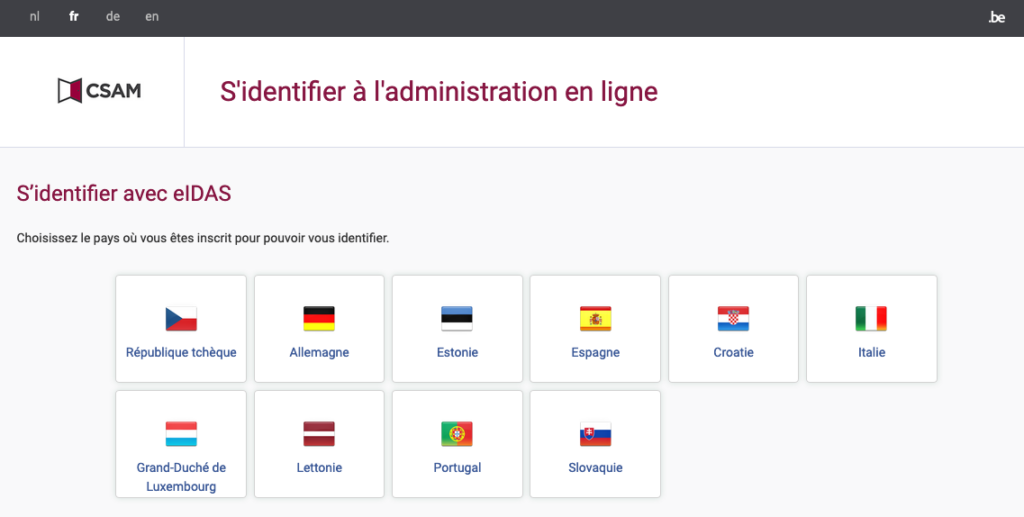The next step of EU integration? A digital identity for all
The next stage of European integration may be just around the corner as the European Commission prepares new rules to grant all EU citizens an electronic identification (eID).
Electronic identification can be seen as the digital equivalent to an ID card or a passport in the physical world. Used online, the eID would allow to connect with public administrations and private service providers not only at national level, but across the countries of the European Union.
It would be attributed on a voluntary basis.
EU citizens would be then able to identify securely when submitting tax declarations, enrolling in a foreign university, opening a bank account or setting up a business in another EU country, making internet payments or bidding for tenders.
The eID is expected to make life easier especially for the people who move or have interests across borders.
At the European Council meeting on October 2, leaders of EU countries endorsed the plan and asked the Commission to present by mid-2021 a legislative proposal for a “secure electronic identification system […] so that everyone can check their identity online and their personal data”.
An EU-wide digital identification system
The EU already has a regulation on electronic identification. The eIDAS regulation was introduced in 2014 to recognise trust services (electronic signatures, electronic seals, time stamps, electronic delivery services and website authentication) across the EU, giving them the same legal status as if they were on paper.
The aim was also to facilitate EU citizens’ access to public services across borders using an eID issued in their home country.
The regulation was the first legal scheme in the world to recognise digital identities in different countries, but progress in practice has been slow.
Only 15 of the 27 EU member states, representing about 58% of the EU population, today offer cross-border eIDs to their citizens, according to a European Commission report on the digital delivery of public services.
The analysis found that eIDs issued in other EU states are accepted for only 9% of the services accessible with a domestic eID.
Margrethe Vestager, Vice-President of the European Commission responsible for the Digital Agenda, said: “From filing taxes to opening bank accounts or applying to an education abroad, 78% of public services can now be completed online and make our lives easier. This needs to go together with an electronic identity that works everywhere in Europe, while protecting user’s data.”
This is an example of how to identify with an EU eID on a Belgian website:

The European Commission is now planning to revise the regulation to extend it to the private sector and to promote an EU digital ID scheme (EUid) for all EU citizens.
The plan is to “make it safer and easier to use online services anywhere in Europe” and “give people more control over their personal data and privacy”.
Questions about privacy
Responding to a public consultation organised by the Commission ahead of the proposal, several organisations welcomed the idea but raised questions about data security and privacy needs.
French Data Protection Authority CNIL (Commission nationale de l’informatique et des libertés) said that each entity accessing the digital identity of an individual should only have access to the personal information they “strictly need”.
As the digital identity “can have a significant impact on the daily lives of individuals”, people should be informed on how their data are processed, CNIL added.
CNIL also said individuals should have more than one digital identity, depending on the use they make of it. For example, a state-issued identity could be used to register on electoral rolls, while a private pseudonym could be used in social media.
The Royal Dutch Association of Civil-law Notaries (KNB) argued a clear separation between the collection of personal identity data and the collection of other data for commercial purposes “would reduce the possibilities” for online platforms to profile citizens or to “obtain a monopoly in a certain area”.
Insurance Europe, the organisation representing the insurance industry in Brussels, said electronic identification will ease access to services across borders, but should not “be subject to any higher legal requirements than non-digital solutions”.
The City of Amsterdam, which has been pushing for a digital identity for all its citizens, responded that especially in Covid-19 times, when physical public services have bee restricted, there is a “need to provide people with an easy way to authenticate themselves in the digital realm.”
German telecom giant Deutsche Telekom argued that for citizens’ acceptance, eIDs must be “easy to set up and easy to use”.
Given the relevance of the eID for financial services, the Swiss Finance Council, which represents the interests of Swiss financial institutions, called for national electronic identification systems to be “easily interoperable not only between EU member states”, but also with third countries.
The British government too has been consulting on changing the law to promote “the use of secure digital identities” and “establish safeguards for citizens”.
The UK aims to “develop the next generation of digital identity use in government, and promote a pragmatic approach to international digital identity standards”. It remains to be seen whether the UK system will be compatible with the EU’s.
Aure Isouard and Claudia Delpero © all rights reserved.
Photo by Robin Worrall on Unsplash.
Europe Street News is an online magazine covering citizens’ rights in Europe. We are fully independent and we are committed to provide factual, accurate and reliable information. We believe citizens’ rights are at the core of democracy and information about these topics should be accessible to all. This is why our website and newsletter are available for free. Please consider making a contribution so we can continue and expand our coverage.





